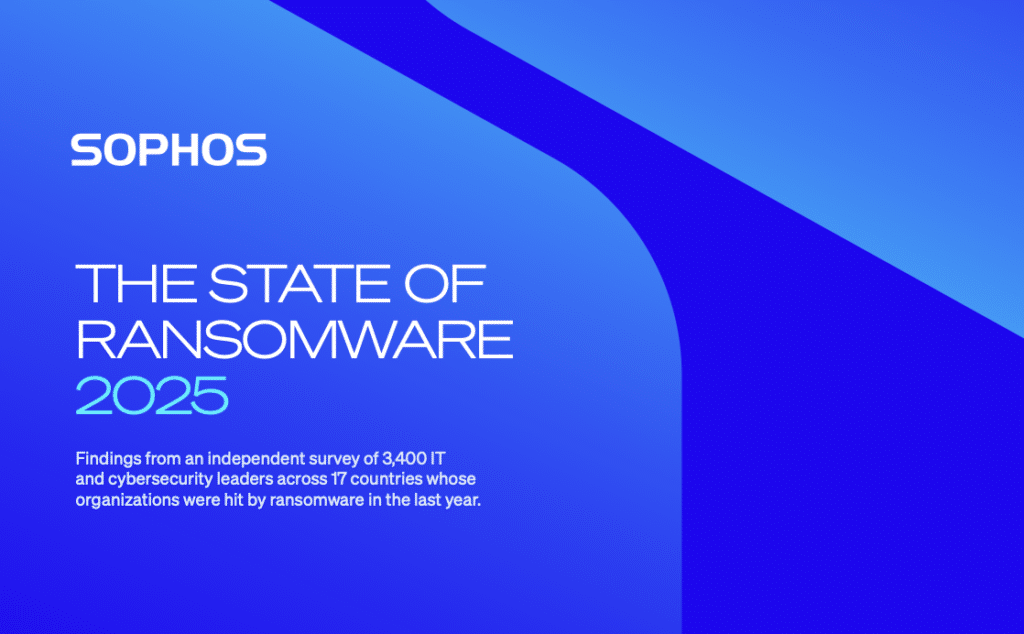Ticking ESG boxes; cloud storage and IT services are the key to compliance, says Espria

With global commitments such as Net Zero becoming more of a priority in the next decade, business leaders must address whether their organisations can tick all the necessary ESG boxes in terms of their IT. Identifying particular facets of sustainability is key to this, as this may vary depending on individual businesses and needs. Thus, a wider overview of industry practices is required – which can be found when businesses look to their cloud storage and managed services provider of choice. Once ESG targets have been set, meeting them and remaining within levels of compliance can be a real challenge when it comes to technology. If you don’t have visibility every step of the way, how can you ensure those ESG boxes remain ticked, and your technology is up to scratch? Businesses need solutions that not only solve their IT demands, but also provide a level of peace of mind that their operations are compliant, environmentally friendly, and future-proof for years to come as we move into a greener world. Ritchie Puckey, Head of Compliance at Espria, believes that when it comes to ESG compliance, IT service providers have an obligation to lead the conversation in terms of upholding sustainable initiatives and ensuring client accountability. “From an ESG perspective, all organisations are now looking towards meeting the minimum standards of expectations. Services must be provided ethically and sustainably and evidenced as such. “Everybody wants to do the right thing for the environment, and most importantly, businesses need to be perceived as doing the right thing. However, ensuring every section of the business is compliant with ESG regulations can be drawn out. For MSPs, compliance is a massive tick box to reassure and provide that sort of galvanisation to the end customer -that they are making sustainable and ethical decisions at every stage. “Compliance extends to all industries. For local government, as an example, all associations must evidence the fact they are purchasing at least 20% of their technology from a sustainable and ethical supply source, to adhere to minimum standards of expectation by 2025. Puckey believes that MSPs are in a prime position to uphold these regulations as they can unify multiple different services under one banner. “Rather than focusing on individual products or talking about the hardware, the software or the services separately, MSPs can focus on combining them all with how they can provide offerings. Providers will scrutinise the sustainability and ethics within their client operations, and as with cybersecurity, implementing full zero trust methodology, they can offer a similar process for productivity and sustainability initiatives. “For smaller organisations, reporting the environmental impact of their supply chain and their customer base is a necessity. Implementing and using tools to aid sustainability, security and productivity reporting is important, and can all be provided by their MSP.” Puckey further asserts that cloud storage is a key part of meeting ESG compliance, rather than something to be concerned about regarding energy consumption. “With its infrastructure designed to scale, a cloud-first approach to delivering solutions is the way to go. In a traditional model, you would have a server running in your office at 20% capacity, using power 24/7/365 and pushing out heat. Data centres are specifically designed to run and cater to multiple users and environments more efficiently, and when looking at power consumption, it’s far more efficient than many individual businesses running their own servers.” “Service providers are investing heavily in sustainable power and renewables to power these data centres. There is even talk now of using the batteries within the data centres to feed back into the grid. Cloud has a lower reliance on hardware deployment, and therefore requires less on-site maintenance support; thus, MSPs can demonstrate to customers reduced energy use, decreased GHGs (Greenhouse gases), reduced technology waste, data centre efficiency and a shift to renewal energy resources all from a single source.” Receiving a Judges’ Commendation in CRN’s Sustainability in Tech Awards, Espria understands its role in and the importance of sustainability to help meet global commitments such as Net Zero, whilst also providing a catalyst for growth and risk reduction. This informs how core business processes, the development of a common culture and the integration of ESG into governance can be manifested. By offering Sustainable Assessments and implementing analytical tools and reporting metrics, Espria empowers its customers to make better decisions, automate processes and provide more data-driven sustainable solutions. Through digital transformation, Espria improves the sustainability of their clients’ businesses in a measurable and accountable way.  To read more about our ESG, please click here.
To read more about our ESG, please click here.
You may be interested in
Is Your MSP Really Helping You Grow — Or Just Keeping the Lights On?
There’s a moment in every business where the question quietly surfaces: “Are we getting what we really need from our IT provider?” It’s not always easy to answer. On the surface, things seem fine. Tickets are resolved. Reports arrive. There’s someone to call when things go wrong. It’s familiar. It’s comfortable. And that comfort can be deceiving. Because beneath the surface, many organisations are stuck in a service relationship that feels safe — but is actually stagnant. And here’s the truth: comfort isn’t the same as progress. For many, the idea of changing MSPs or challenging the…
The 2025 State of Ransomware: Key Insights on Attacks, Costs, and Recovery
Ransomware continues to evolve — and so must our defenses. The State of Ransomware 2025 report from Sophos presents one of the most comprehensive views yet into how organisations around the world are being impacted by ransomware attacks. Based on an independent survey of 3,400 IT and cybersecurity leaders across 17 countries, the report explores how attacks are evolving, the operational weaknesses adversaries exploit, and the human and financial tolls that follow. Whether you’re building a cybersecurity strategy or assessing risk, this year’s findings offer crucial, real-world insights to guide your response. Key Findings from…
Outgrowing your MSP; businesses need a provider that scales with their growth
To stay competitive, business leaders must align with MSPs that deliver strategic value, drive innovation, and support to scale. Now firmly into 2025, it’s becoming clear what the year has in store for the IT landscape. For SMBs, the message is clear: business growth must be matched with smarter, more scalable managed services. The demand for cyber-resilient, cloud-first and AI-integrated solutions is no longer a forecast – it’s a reality already shaping business priorities. According to leading global technology market analyst firm Canalys’ MSP Trends 2025 report, the MSP model is transforming under growing pressure…
End of windows 10 support signal urgent action needed from UK organisations as cyberattacks continue to rise
Recent breaches at major UK retailers, combined with the approaching end of life of Windows 10, highlights a critical moment for IT resilience planning The recent wave of cyberattacks targeting major UK retailers has highlighted the growing security risks associated with organisations running outdated systems and applications and maintaining weak identity verification protocols. These incidents—particularly those involving Marks & Spencer and the Co-Op—have starkly exposed how vulnerable legacy infrastructure and insufficient access controls can be. In both cases, attackers successfully posed as legitimate employees and manipulated IT help desks into resetting internal passwords, ultimately gaining…
UK SMEs must fortify their cybersecurity against geopolitical risks, says Espria
A recent Sky News investigation highlighted an uptick in cyberattacks tied to the Iran conflict that are targeting businesses across multiple sectors. Speaking at the NATO Summit, Prime Minister Sir Keir Starmer urged UK businesses, regardless of size or sector, to prioritise cybersecurity and ‘take immediate steps to review and strengthen their defences.’ While the warning is timely in tone, businesses are already becoming targets of politically motivated cyberattacks, emphasising the need for heightened vigilance. “As tensions spread globally, threat actors will continue to exploit digital vulnerabilities, and neutral businesses may be caught in the…
Why Businesses Should Invest in ESG: Lessons learned by Espria
In today’s competitive landscape, Environmental, Social and Governance (ESG) performance is no longer just a “nice to have”—it is a critical business imperative. Companies that prioritise ESG are better positioned for long-term success, risk mitigation, and reputation enhancement. Today’s world demands more from companies than just financial performance. Customers want transparency. Employees want purpose. Investors want resilience. ESG helps businesses manage risk, seize new opportunities and build trust with the people who matter most. It is how you can stay competitive, stay responsible and stay relevant in a fast-changing world. A powerful case study of…





